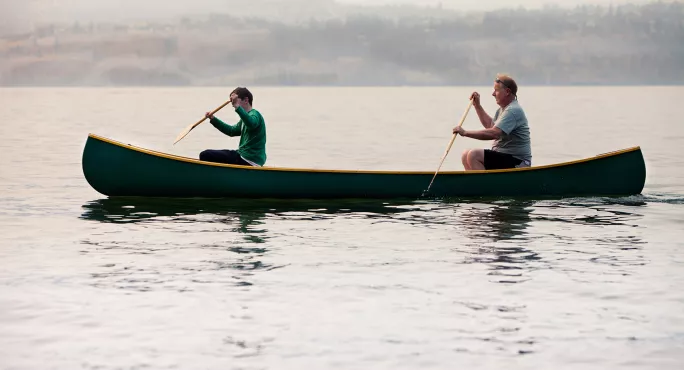How a primary, secondary and independent school partnership works

Why get involved in a state-independent partnership? It’s a good question. There’s a lot wrapped up in the perceived divide between the two sectors and it can make some reluctant to engage.
But look a bit closer and you’ll see that we’re all professionals, all trying to improve outcomes for children - there’s no such thing as better, only different.
That’s been the case for us here in Norfolk, where we, as an independent school, state secondary and state primary have worked together on a number of projects that have engaged young people and widened their horizons.
Working across age ranges
Just last week, a group of students got involved in a maths symposium, hosted and funded by Norwich School in partnership with eight local state schools for students from Years 10 to 13, including Ormiston Victory Academy.
They came back buzzing; they got to spend time with peers who are working at a similar level and they got to talk about maths in a different way.
It gives them all a different level of confidence and helps them to find the joy in learning, as well as working on achieving high grades.
At primary level, we run a Dragons’ Den-style competition, with Year 5 pupils from the primary school mentored by sixth-form business studies students at the independent school, where the event is hosted.
The groups have to come up with an innovative product or service and present their idea in front of a panel of Norfolk business leaders, who grill them.
It’s amazing to watch children who have previously been nervous about going to the front of the class to speak grow to have real confidence in their speaking skills. The sixth-formers, too, learn valuable coaching skills and you see the pride they have in their teams, pointing out their mentees to their peers and cheering them on as they present.
Expanding learning opportunities
The partnership has also allowed us to offer subjects beyond the traditional curriculum.
The Swire Chinese Language Centre, which Norwich School leads, means more students in the local area can study Mandarin - some are looking at getting their GCSE in it later this year, and there’s also the possibility of a trip, too.
Languages teaching is a very important part of our partnerships, too; along with Cheadle Hulme School and King Edward’s School, Norwich School created the World of Languages and Languages of the World (WoLLoW) curriculum package to help expose pupils to a broader sense of what language is all about.
As well as partnerships focused on pupils, we’ve also looked at how we can work together for professional practice, too.
One project about to start will look at live marking as an innovative way of reducing teacher workload while we all share best practice in other ways, starting with staff taking part in learning walks at each other’s school, starting with Ormiston Victory soon.
It came about because of another partnership activity - where the headteacher of one school was a governor at another school. Having someone coming from a different context, asking a different set of questions to the ones that we would typically be asked by the governing body, benefits schools tremendously.
And from that, there’s been collaborative work on teaching and learning, about lifelong learning, and assessment and feedback.
What are you waiting for?
One of the best things about a lot of what we’re involved in is that it is replicable elsewhere. WoLLoW is used in over 600 schools across the country (both state and independent), there are 12 Swire centres in the UK reaching 23,000 students, and we’re looking at expanding the Dragons’ Den project (and we have big dreams of it going global!).
Sharing best practice is not limited by geography. These are things that any state school and independent school can work in collaboration to do together, as well as with higher education and business partners.
However, having that formal, local partnership ensures that it remains a priority for schools. And that’s important: we need to fight to keep those things happening because they make a transformational difference to young people’s education.
Why get involved in a state-independent partnership? It’s a good question. But we’ve got a good answer: why wouldn’t you?
Nicola Hill is assistant head (partnerships) at Norwich School, Naomi Palmer is principal at Ormiston Victory Academy and Toby Whalen is deputy headteacher at Mile Cross Primary School
You need a Tes subscription to read this article
Subscribe now to read this article and get other subscriber-only content:
- Unlimited access to all Tes magazine content
- Exclusive subscriber-only stories
- Award-winning email newsletters
Already a subscriber? Log in
You need a subscription to read this article
Subscribe now to read this article and get other subscriber-only content, including:
- Unlimited access to all Tes magazine content
- Exclusive subscriber-only stories
- Award-winning email newsletters
topics in this article



